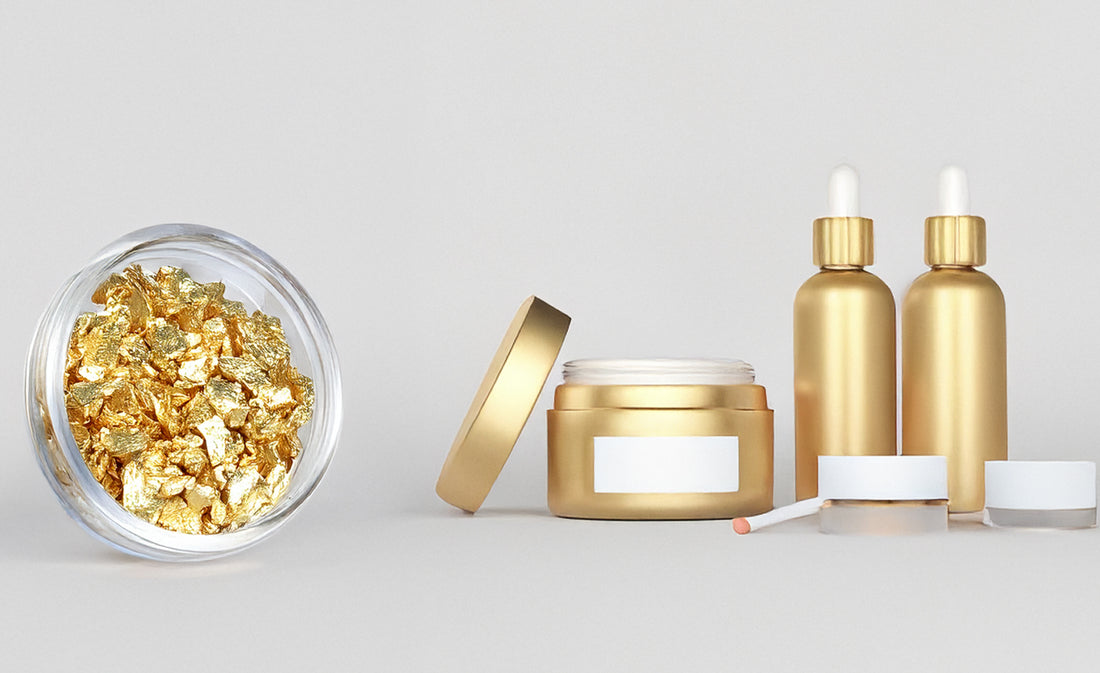
Skincare: The Science and Luxury of Gold
Share
Gold has been used in the cosmetics sector for its reputed anti-aging, anti-inflammatory, and skin-brightening properties. Here are some key aspects of gold’s use in cosmetics:
- Anti-Aging Benefits
Gold is believed to reduce the appearance of fine lines and wrinkles by stimulating collagen production and enhancing skin elasticity. It is often used in anti-aging creams, serums, masks, and facial treatments.
- Anti-Inflammatory Properties
Gold nanoparticles have anti-inflammatory properties, making them useful for soothing and calming irritated skin. This makes gold-infused products beneficial for individuals with sensitive or acne-prone skin.
- Brightening and Radiance
Gold is known for its ability to enhance skin radiance. Many luxury skincare products use gold to impart a luminous glow, improving the overall appearance of the skin.
- Antioxidant Effects
Gold has antioxidant properties, which help protect the skin from environmental damage, such as pollution and UV radiation. This can contribute to healthier, more youthful-looking skin.
- Anti-Bacterial Benefits
Gold’s antimicrobial properties help in protecting the skin from infections and impurities, making it suitable for use in acne treatment products.
- Luxury and Prestige
The inclusion of gold in cosmetic products is often associated with luxury and high-end skincare. This drives the appeal of gold-infused products for consumers looking for premium beauty solutions.
- Gold Nanoparticles in Formulations
Gold nanoparticles are used in skincare formulations because of their high stability, bio-compatibility, and ability to easily penetrate the skin barrier. They can act as carriers for active ingredients, improving the absorption and efficacy of other compounds in the product.
Gold is commonly found in products like face creams, serums, masks, facial peels, eye creams, and even some makeup products. While scientific evidence varies, its use is heavily marketed based on historical use and anecdotal reports of effectiveness.
